Do Portable Heaters Use a Lot of Electricity? Best 2023 Guide on Electric Space Heaters
Portability, convenience, and affordable pricing make portable heaters a popular choice for home heating. However, concerns about their energy consumption abound. As a professional copywriting journalist, I understand the importance of determining the electricity consumption of portable heaters. In this article, we will delve into the topic and provide insights into the energy usage of these heaters.
As we explore the impact of portable heaters on electricity usage, we will use SEO relevant keywords such as "do portable heaters use a lot of electricity," "electricity consumption of portable heaters," and "energy usage of portable heaters." Through in-depth analysis, we will address common questions and misconceptions concerning the energy consumption of portable heaters.
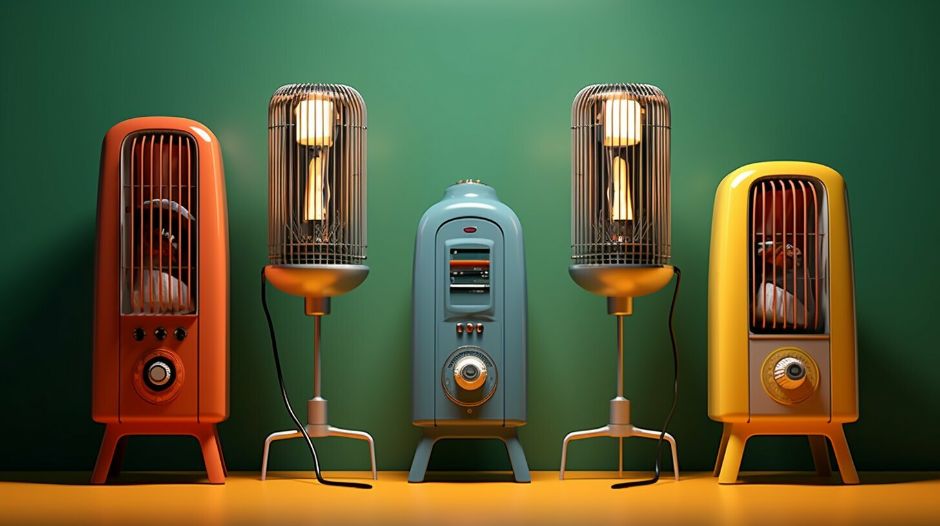
By the end of this article, you will have a comprehensive understanding of the electricity usage of portable heaters. We will provide tips for optimizing their energy efficiency and identify energy-saving alternatives that can be used in conjunction with these heaters. So, let's get started and find out whether portable heaters are energy hogs or a smart choice for home heating.
Understanding the Energy Consumption of Electric Space Heaters
Many homeowners often wonder, "Do heaters use a lot of electricity?" Well, the amount of electricity that an electric heater consumes can significantly vary. This consumption largely depends on how hot you set it and how long it runs. Understanding the energy consumption of electric space heaters is therefore crucial to managing overall heating costs and ensuring energy efficiency.
Electric space heaters are common appliances primarily used to heat specific rooms or spaces in a home. The measure of energy that these heaters utilise is often of great concern to many homeowners due to the potential implications on electricity bills. So, how much electricity does a space heater use? The reality is that space heaters can consume a considerable amount of power. However, the exact amount of electricity used is dependent on several factors.
Firstly, the temperature at which you set the space heater can significantly impact how much electricity it uses. As a rule of thumb, the hotter you set the heater, the more electric energy it will consume. Hence, it's advisable to maintain a moderate temperature setting to minimise consumption and prevent any safety risks associated with overheating.
Secondly, the duration of using an electric space heater can also affect the amount of electricity it consumes. If you frequently and continuously use the heater for extended periods, the electricity usage will undoubtedly be high. Switching the heater off when it's not in use or investing in a timer can help manage its energy consumption.
Another key aspect to understanding the energy efficiency of electric heating in a home involves calculating how much electricity does a heater use. To calculate electric usage of a heater, take the heater's wattage and multiply it by the total number of hours it operates then divide by 1,000. This calculation will give you the kilowatt-hours (kWh) consumed, which can then be multiplied by your electricity rates to give you the cost of operating the heater.
Despite the potential for high electricity use, electric space heaters remain a popular choice due to their numerous benefits. They provide targeted heating, which can lead to greater energy efficiency if used appropriately. Localised heating can help reduce the need for central heating, potentially lowering overall heating costs.
In conclusion, the question of "do electric heaters use a lot of electricity" isn't a simple 'yes' or 'no' answer. It largely depends on the specific details like how hot you set it, for how long it operates, and the overall energy efficiency of the heater model. It's therefore essential to carefully consider these factors and seek professional advice before purchasing an electric space heater. This will ensure the heater serves your heating needs optimally while optimising electricity usage and maintaining safety.

Understanding the energy efficiency of portable heaters can help you make an informed decision when purchasing a heater. In the next section, we will explore how much electricity portable heaters use on average.
How Much Electricity and Energy is Consumed by Portable Heaters?
There is a widespread notion that heaters use a lot of electricity, especially when discussing the amount of electricity that an electric heater consumes depends on how hot you set it. This is not without reason, as electric space heaters are known for their somewhat hefty power consumption. To understand this topic more fully, one needs to delve into the specifics of how much electricity does a portable heater use.
Firstly, to correctly calculate electric usage, you must be aware of the wattage of your electric heating device. Most heaters electric-based carry a wattage rating ranging from 750 to 1500 watts. This number gives you the energy use per hour. To calculate the cost, multiply this by the cost per kWh your utility company charges.
Next, we must address that heating costs can vary greatly based on how much you use the heater. A heater running at full capacity for an hour uses a significant amount of power, but a heater running on a lower setting for the same time period will use less. Do bear in mind that the room's size and outdoor temperature also affect the energy usage.
Additionally, the energy efficiency of a space heater significantly contributes to its power consumption. Two heaters might use the same amount of electricity, but one might emit more heat due to better efficiency. So, does using these appliances rigorously increase the electricity bill?
The answer largely depends on your usage. Portable heaters uses electricity to generate heat, and if you're using it for extended periods in large spaces, it might cost you. Considering this, how much energy a heater necessitates largely depends on your preferred room temperature and how long the device stays in operation.
Our advice when considering the costs of using an electric heater is to aim for energy efficiency and safety. Heaters with an Energy Star rating consume less power, which saves you on costs in the long run. Also, heaters with safety features such as auto-off timers and tip-over switches are recommended, as they prevent overheating and potential fire hazards.
So, what's the verdict - do portable heaters use a lot of electricity? The answer largely depends on wattage, settings, usage, and energy efficiency. While it is safe to say that these appliances do use more electricity compared to some other household devices, smart usage and energy-efficient models can significantly reduce the costs associated with electric heating.
| Type of Portable Heater |
Electricity Consumption (watts per hour) |
| Ceramic Heaters |
700-1500 |
| Oil-Filled Radiator Heaters |
600-1500 |
| Quartz Radiant Heaters |
400-1600 |
| Convection Heaters |
400-1500 |
It is worth noting that the size of the room being heated also plays a role. A small room will require a lower wattage heater than a large room.
In summary, portable heaters do consume electricity, but the amount of electricity consumed depends on the wattage rating and the number of hours used per day. Understanding these factors is crucial in determining the energy usage of electric heaters.
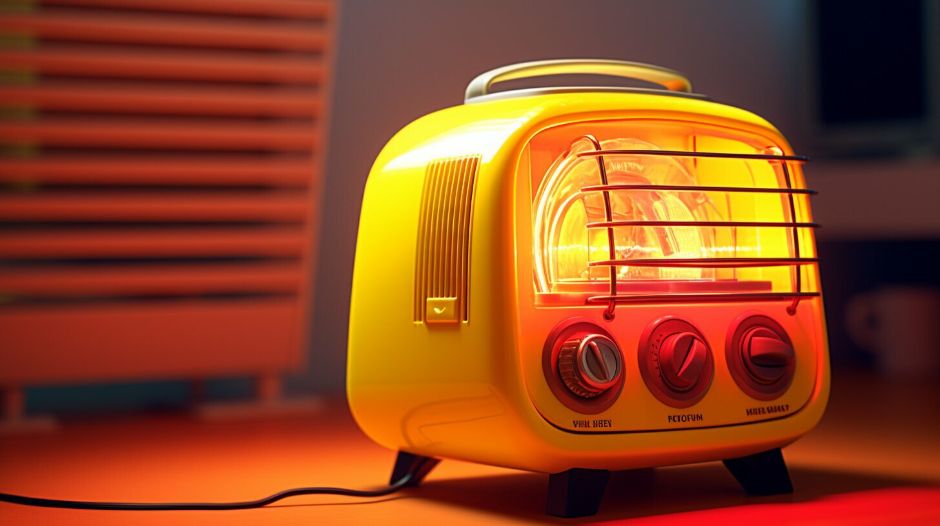
The electricity consumption of portable heaters can be affected by several factors. Understanding these factors can help you make informed decisions about energy usage and optimize the performance of your heater.
Heater Size and Output
One of the primary factors affecting electricity consumption is the size and output of the portable heater. Larger heaters with high output will consume more electricity than smaller ones. It is important to consider your heating needs and choose a heater with an appropriate size and output to meet those needs efficiently.
Temperature Settings
The temperature setting of your heater can also impact energy usage. The higher the temperature setting, the more electricity the heater will consume. It is recommended to set the heater to the lowest comfortable temperature to optimize energy usage.
Insulation
The level of insulation in your room or space will impact the energy consumption of your portable heater. Poorly insulated rooms will require more energy to maintain the desired temperature, as heat will quickly escape through walls, windows, and doors. Ensuring proper insulation can reduce the amount of electricity required to heat the space.
Usage Patterns
The usage pattern of your heater can also impact energy consumption. For instance, running the heater continuously will consume more electricity than using it only when needed. It is recommended to turn off the heater when the room is unoccupied or when the desired temperature is reached.
Placement
The placement of your portable heater can also impact energy usage. Placing the heater near a drafty window or door will result in more energy consumption as heat will quickly escape through those areas. It is recommended to place the heater away from drafts and in a central location to optimize performance and reduce energy usage.
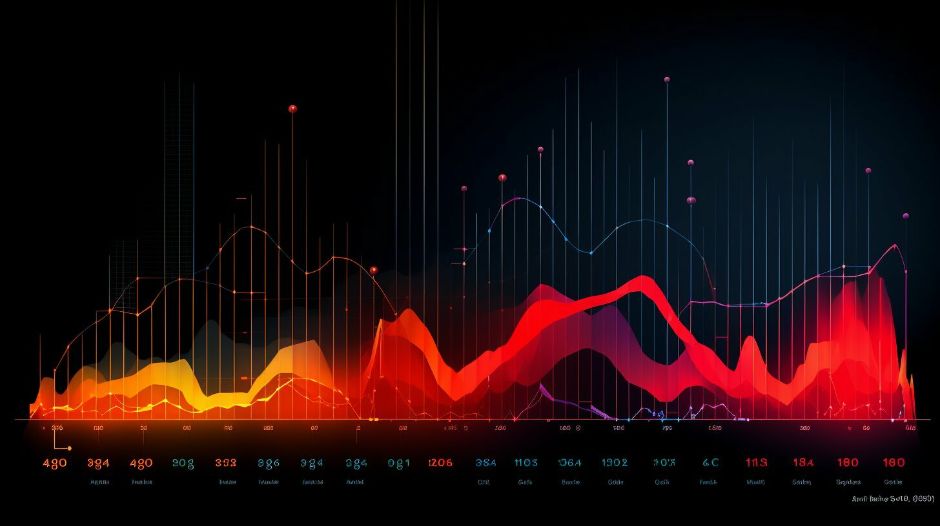
By considering these factors and adopting energy-saving practices, you can optimize the electricity consumption of your portable heater and reduce your energy bills.
Finding Energy Efficiency in the World of Portable Heaters
Most homeowners are shifting towards electric space heaters to keep their homes warm during the chilly seasons. However, as much as these heaters are excellent in heating your home, they can be quite costly when it comes to electricity consumption. The question that many homeowners ask themselves is, "do portable heaters use a lot of electricity?" Well, the answer to that is not that straightforward. No two heaters will use the same level of electricity. This is mainly because there are many factors that influence electricity consumption, such as the type of heater, its energy efficiency, how often you keep your heater running, and the size of the room that you're heating.
The truth is, even if you opt for energy-efficient heaters, you may not save money if you pick the wrong one for your home. When it comes to energy efficiency, one piece of advice that will serve you right is to select a heater size that matches the size of your room. If you have a smaller room, you do not need to buy a massive heater. A small, portable electric space heater will do the job. On the other hand, if your room is vast, you will need a larger heater. Therefore, it is advisable to understand your heating needs before making a purchase.
How do you save energy and yet keep your home warm? There are various ways you can achieve this. First, you can consider buying an energy-efficient electric space heater. While this may be slightly expensive, it will serve you well in the long run as you will significantly save on energy bills. Second, try to bare the slight chill during the least chilly times. There is no need to keep your heater running throughout, as this will only rack up your electricity bills. Lastly, you can consider insulating your home. Proper insulation acts as a barrier, preventing heat from escaping from your home.
Nowadays, most people shop for heaters online. Many online platforms list the energy consumption of every heater. This allows you to compare different brands and models based on their energy efficiency. While doing so, keep an eye out for energy-star rated models since these are optimized for energy conservation.
Electric space heaters are essential home appliances. Try not to let the fear of high electricity bills deter your decision to purchase one. With the right knowledge, heating your home efficiently is possible without necessarily increasing the bills. There is no doubt that energy-efficiency is a critical concern when it comes to heaters, so remember to follow our advice before buying any model. Does it consume a lot of electricity? Does it have an energy-star rating? Is this heater suitable for your room size? Addressing these questions will help you find a suitable heater for your home.
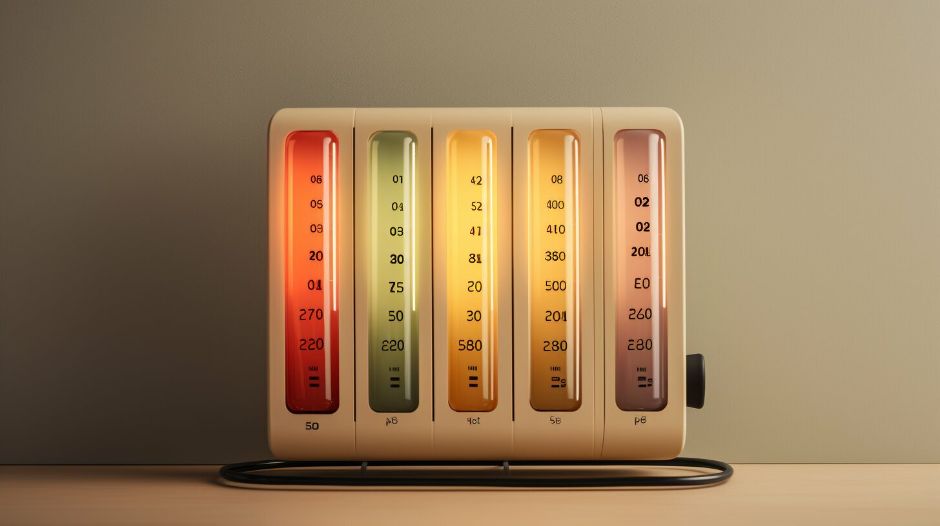
While portable heaters can be useful in keeping your space warm, they can consume a significant amount of electricity if not used efficiently. Here are some tips to help minimize your electricity usage:
-
Use a programmable thermostat: This feature can help you regulate the temperature and automatically turn off the heater when the desired temperature is reached. This can prevent overuse and unnecessary energy consumption.
-
Keep the heater clean: Dust and debris can build up in the heater, causing it to work harder than necessary and consume more electricity. Regularly clean your portable heater to ensure maximum efficiency.
-
Select the right size heater: A heater that is too small may not provide sufficient warmth, causing you to turn up the temperature and use more electricity. On the other hand, a heater that is too large for your space may consume more energy than necessary. Choose a heater that is appropriately sized for your room.
-
Use a fan: Using a fan to circulate warm air can help reduce the amount of time the heater needs to run. This can ultimately minimize electricity usage.
-
Minimize drafts: Ensure that your space is properly insulated to prevent drafts. This can help maintain the warmth in the room and reduce the need for the heater to work harder.
-
Turn off the heater when not in use: When you leave the room or go to bed, turn off the heater. This can significantly reduce electricity usage and save you money on your energy bill.
By following these tips, you can optimize the energy usage of your portable heater and reduce your electricity consumption. This can not only benefit your wallet but also contribute to a more sustainable future.
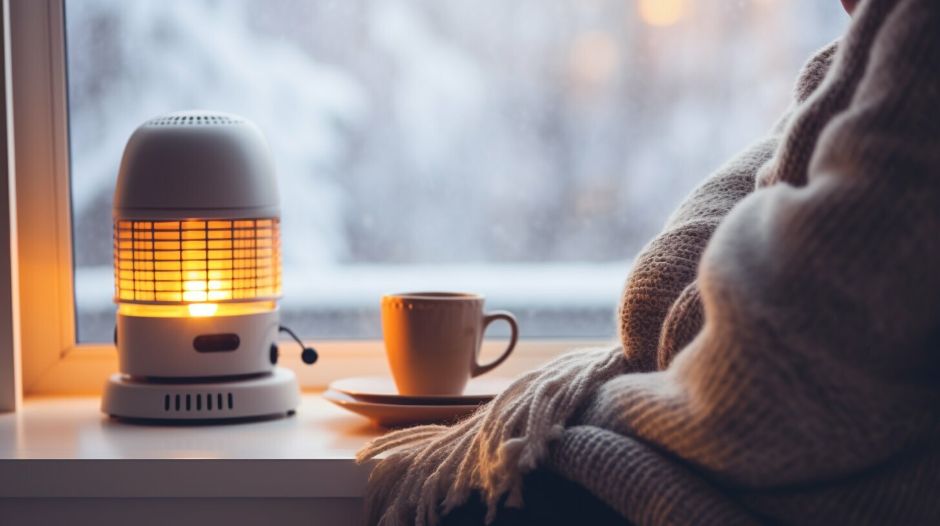
When it comes to heating options, there are various alternatives to using portable heaters. It is essential to compare the electricity consumption of different heating methods to determine their energy usage.
While central heating systems are a popular choice, they can be costly to install and operate. Additionally, they tend to heat the entire house, even when only one room requires heating.
Similarly, traditional wood-burning fireplaces can be inefficient and pose safety hazards. They also require regular cleaning and maintenance.
Electric heaters, on the other hand, offer a portable, cost-effective heating solution. When compared to other heating options, portable heaters consume less electricity, making them a more energy-efficient choice.
It is worth mentioning that the type of portable heater plays a significant role in energy consumption. For instance, infrared heaters are more energy-efficient than conventional electric heaters. They work by heating objects in the room, rather than the air, thereby conserving energy.
Ultimately, when comparing heating options, it is essential to consider factors such as energy consumption, cost, and safety. While conventional heating options may have their benefits, portable heaters offer a more practical and energy-saving solution.
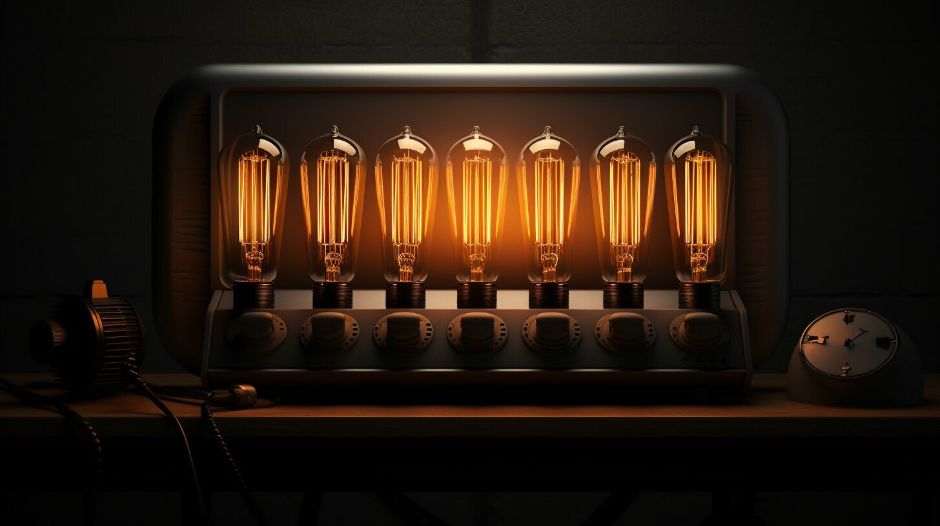
When it comes to portable heaters, understanding the electricity consumption is crucial, but it's just as important to know the cost implications of using them. The cost of electricity varies based on various factors, including the state you reside in, the season, and the time of day. However, an average cost of electricity is around 13 cents per kilowatt-hour (kWh).
The electricity consumption of heaters is measured in watts. The higher the wattage, the more energy it consumes, resulting in higher electricity costs. For instance, a 1500 watts heater operating eight hours a day for a month will use 360 kWh. At 13 cents per kWh, this will cost about $46.80 per month.
It's worth noting that the cost of electricity doesn't entirely depend on the electricity consumption of portable heaters. Factors like personal usage habits, the size of the space being heated, and the outdoor weather temperature can influence electricity costs.
Electric heaters have different levels of energy efficiency, and choosing one with a higher energy efficiency rating can save you money in the long run. An energy-efficient portable heater with a low wattage output will consume less electricity and ultimately cost you less.
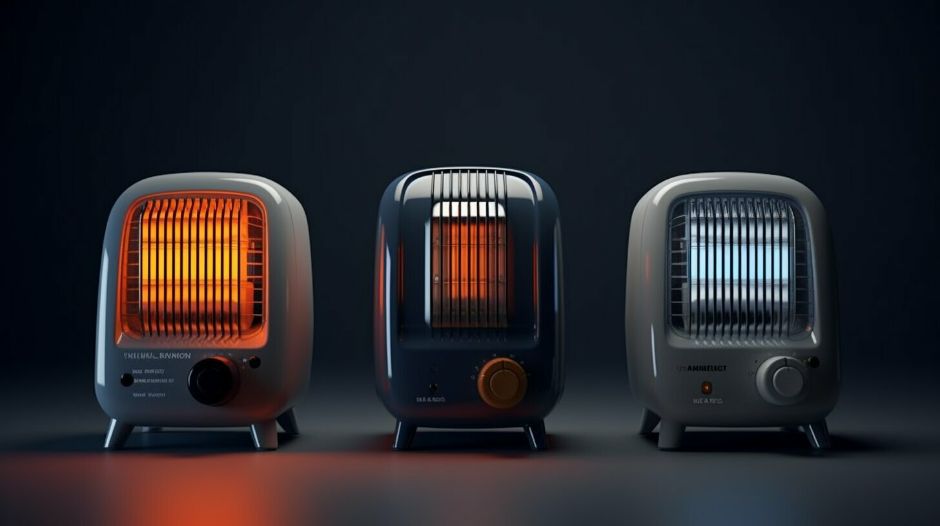
It's essential to keep an eye on your electricity usage and understand the costs associated with using portable heaters. By doing so, you can make informed decisions about which heating options are the most cost-effective based on your needs and budget.
The Role of Electricity in the Efficiency Ratings of a Home Heater
When considering a heating system for the home, it is crucial to understand the role of electricity in the efficiency ratings of a home heater. An integral component of this understanding pertains to the use of electric space heaters. When it comes to these heaters, they are often reviewed based on the amount of electricity they consume and how effectively they can heat a home.
As we delve deeper into the matter, the question arises: does a heater running on a continuous basis use a lot of electricity? To answer this, we must first determine the energy efficiency of the heating system. In layman's terms, a system's energy efficiency is determined by how much output (heat) is generated per unit of input (electricity). Thus, you would want your electric space heater to produce the most heat possible for every unit of electricity consumed.
The energy efficiency of these heaters varies dramatically, and the type of heater you choose can have a significant impact. For instance, a traditional home heater will use more electricity than a heat pump, which is considered the most energy-efficient heating system available. Heat pumps are designed to move heat rather than generate it, meaning they require less energy to keep your home warm.
When it comes to keeping a heater running, it's important to note that most of the electricity consumed by heaters is converted directly into heat. However, some energy is inevitably lost in the conversion process. This is partly due to the inefficiency of some types of electric heaters. So, when looking for an electric heater, consider one with high energy efficiency ratings. This will reduce the amount of electricity it consumes and, thus, the overall cost of running it.
The use of a portable heater can also influence how much electricity is used. For instance, if an electric space heater is only used for a few hours each day, it will consume far less electricity than if it was kept on continuously. The heater's size and the area it is expected to heat also play significant roles in how much electricity is consumed. Larger heaters or heaters used in larger spaces will consume more electricity.
Reviews of electric heaters can provide valuable insights into their energy efficiency. Many independent websites and organizations thoroughly review heaters to help consumers make informed decisions. They assess how much heat a heater can generate for every unit of electricity it consumes and rate the heaters accordingly.
In conclusion, yes, heaters do use a lot of electricity, but the amount can vary significantly depending on the type of heater and how it's used. Understanding the role of electricity in the efficiency ratings of a heater is therefore essential when choosing a heating system for your home. It will help you to select a heater that's within your budget, and that will effectively heat your home. Thus, managing the relationship between heat, energy, and electricity is key to cost-effective home heating.
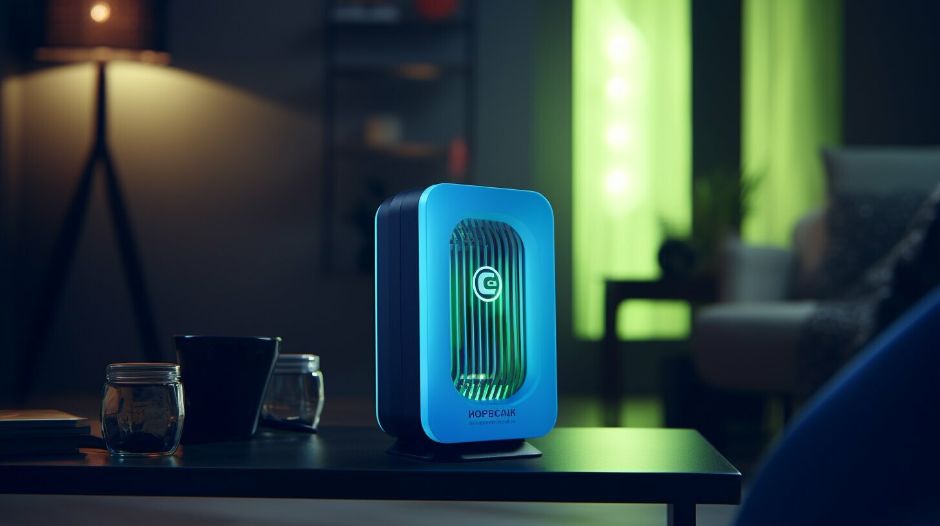
Using portable heaters efficiently can minimize electricity usage and save on energy costs. Here are some guidelines:
- Place the heater on a flat and stable surface to avoid any accidental falls or tipping over.
- Keep the heater away from any flammable materials like curtains, bedding, or furniture. The recommended safety distance is at least three feet away from any combustible materials.
- Do not leave the heater unattended while it's turned on, and turn it off when leaving the room or going to sleep.
- Set the thermostat to a comfortable temperature and avoid overheating the room.
- Regularly clean the heater's filter to ensure smooth air circulation and maximize its efficiency.
- Use a timer or programmable thermostat to control the heater's operating hours and reduce energy consumption when it's not necessary.
By following these tips, the electricity usage of portable heaters can be significantly lowered, reducing energy costs and improving energy efficiency.
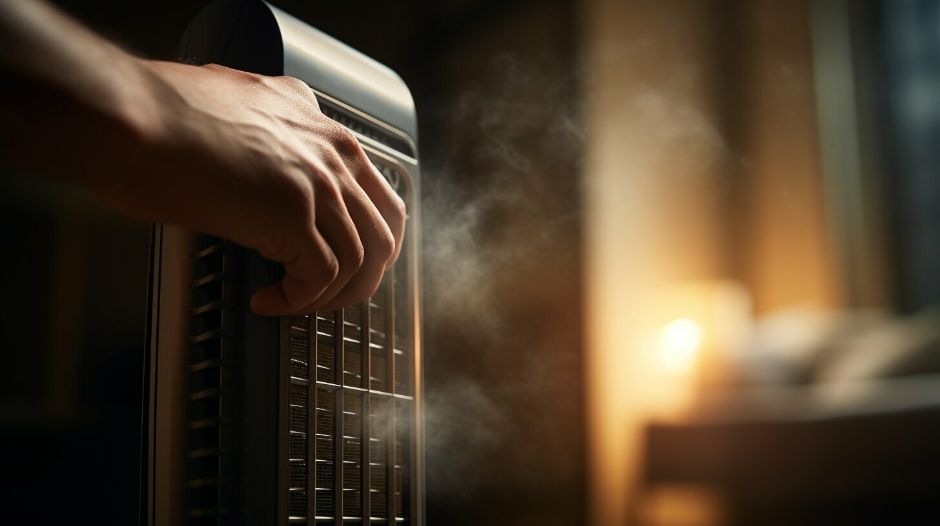
Proper maintenance of portable heaters can also contribute to optimizing their electricity consumption. Here are some maintenance tips:
- Regularly clean the heater's exterior and interior surfaces to avoid any dust buildup or blockages that can hinder its performance.
- Check the power cord and plug for any signs of wear and tear or damage, and replace them if necessary. Avoid using extension cords or power strips as they can overload the circuit and increase the risk of electrical fires.
- If the heater has any moving parts or fans, lubricate them according to the manufacturer's instructions to ensure smooth operation and minimize energy usage.
- Inspect the heater's components and connections periodically, and replace any damaged or faulty parts to maintain optimal performance and energy efficiency.
By adopting these proper usage and maintenance practices, the electricity usage of portable heaters can be minimized, reducing energy costs and improving energy efficiency.
Investigating Energy-Saving Features of Modern Electric Space Heaters
Whether or not electric space heaters use a lot of electricity is a question many homeowners ask. Indeed, among many appliances, the issue of energy efficiency and its potential to save money is paramount. For this reason, the exploration of energy-saving features in modern heaters electric is a topic worth delving into.
First, it is essential to understand the mechanism of electric heating. Most space heaters use a resistive heating process. When electricity passes through the heater's resistive elements, it converts the electric energy into heat energy, efficiently warming the room. However, the exact amount of electricity a space heater uses is largely dependent on its wattage, which varies among different heater models. Therefore, the question, "Do portable heaters use a lot of electricity?" relies heavily on the specific heater and how much it is used throughout the day.
The exciting development in modern electric space heaters is the integration of energy-saving features. Look for models with adjustable thermostats and energy-saving modes, which automatically lower the heater's output when reaching a desired temperature. This not only reduces the heater's energy consumption but can also significantly cut down heating costs.
Another feature being incorporated into modern electric space heaters is the use of panels that heat a much larger area, instead of a central coil. This allows the heater to use less energy while still adequately heating the room. Moreover, some portable heaters now come with timers, allowing you to limit the hours the heater runs each day, further saving on energy costs.
How an electric space heater uses energy could, therefore, be a game-changer. By incorporating energy-saving features, manufacturers are seeking to make heater running a less energy-consuming process. So, when asked, "Does a portable heater use much electricity?" the answer is increasingly becoming, "Not as much as before."
Lastly, safety is another important factor when using a space heater. Many models now include safety features such as overheat protection and a tip-over switch, preventing the heater from running if it gets too hot or is knocked over. These features not only prioritize user safety but can also save on energy costs by preventing the heater from running when not necessary.
In conclusion, as manufacturers continue to strive for more energy-efficient appliances, consumers can expect their electric space heaters to become more efficient. The extent to which a heater consumes electricity largely depends on its features and usage throughout the day. However, through energy-saving features, heating costs can decrease while still providing the needed heat. Therefore, our understanding of electric heating continues to evolve, enhancing both efficiency and safety in our everyday appliances.
While portable heaters can be an excellent source of heat, there are certain scenarios where they may not be the most energy-efficient option. Here are some alternative methods that can supplement the heat provided by portable heaters:
-
Insulation: Good insulation is critical to maintaining heat in your home. Properly insulated windows and doors can help prevent heat loss, minimizing the need for additional heat sources.
-
Programmable Thermostats: Installing a programmable thermostat can help regulate the temperature in your home, ensuring that unnecessary energy is not consumed.
-
Area Rugs and Curtains: Covering cold floors with area rugs and using insulated curtains can help retain warmth in your home, reducing your reliance on portable heaters.
-
Humidifiers: Portable heaters tend to dry out the air in your home, making it feel colder. Adding a humidifier can help retain moisture in the air, making the space feel warmer.
By utilizing some of these energy-saving alternatives, you can supplement the heat provided by portable heaters while reducing your overall electricity usage.
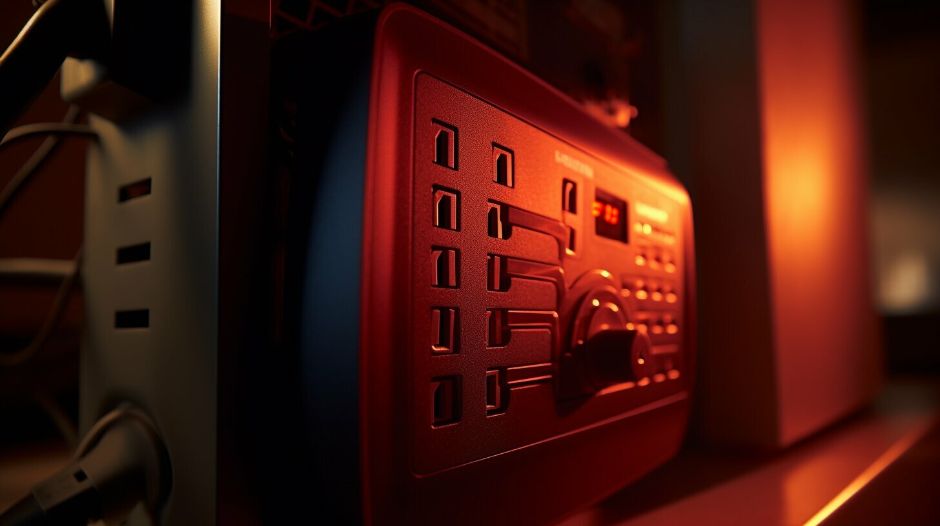
Alternatives for Saving Energy at Home: Beyond Heaters
When it comes to saving energy at home, it's essential to consider alternatives beyond traditional types of heating systems. As we continue to explore the question, "Do Portable Heaters Use a Lot of Electricity?" It becomes increasingly clear that the road to energy efficiency often lies beyond the appointment of a single room warming apparatus. If the aim is to save money while curating a warm and inviting home, a holistic approach should be taken. A smart route to achieving this is by evaluating all existing appliances in your home and considering more energy-efficient options.
One appliance worth paying close attention to is the heat pump. Heat pumps are an energy-efficient alternative to conventional heating methods as they move heat instead of generating it. Investing in a heat pump won't only save money on electricity costs, but it'll also contribute to cutting down your home's overall carbon footprint. In our guide to understanding the energy consumption of portable heaters, it is clear that transferring heat is a more efficient process than the mechanism of electric space heaters that generate heat.
Moving beyond traditional home heating options allows for money-saving and energy-efficient choices that contribute to a more sustainable lifestyle. A common mistake many members of our online community make is spending their budget on high-tech heaters while neglecting other appliances that could be contributing to high energy bills. Remember, energy efficiency is a journey that ought to be approached room-by-room, and appliance-by-appliance.
While on the topic of utilizing resources beyond the home, it's worth considering the role your garden plays in maintaining the temperature of your home. Planting shade trees strategically around your property can serve as a natural heat blocker during the hotter months, reducing the need for air conditioning. In contrast, the bare branches during colder months ensure sunlight reaches and warms your home. It's worth noting that harnessing the energy-saving power of nature takes time, so start planning your energy-efficient garden today.
As we close our investigation into energy-saving features of modern electric space heaters and alternatives for home heating, let's remember that the pursuit of energy efficiency is an ongoing process that evolves as technology advances. Regularly checking online resources, crowd-sourcing tips from online community members, and asking questions is an empowering way to stay informed and make meaningful strides towards an energy-efficient future for your home and the world at large. With thoughtful planning and informed decisions on heating systems, you can enjoy a warm home without requiring an excessive heater or high electricity bills.
Finally, as part of this commitment to nurturing a community in pursuit of energy efficiency, remember that you have fellow members ready to support you on this journey. Don't ever hesitate to ask questions, share tips, or seek guidance as you navigate the world of home heating. We're here to help guide you to an energy-efficient, cost-effective, and ultimately, more sustainable home.
Does a Lot of Electricity Usage Translate to High Energy Bills?
One of the common questions homeowners often ask is, "Does a lot of electricity usage translate to high energy bills?" This question is especially prevalent when considering home appliances like portable heaters that are specifically designed for heating purposes. Understanding how these devices work and the amount of electricity they are using is crucial for managing your energy consumption sensibly.
Electric heaters do, indeed, consume a considerable amount of electricity. But does this mean they automatically result in high energy bills? Well, it isn't a simple 'yes' or 'no' answer as it largely hinges on several factors such as your usage habits, the efficiency of the appliance, and your power supply's rate per kilowatt-hour. However, as a rule of thumb, the more an appliance uses electricity, the higher the energy costs are likely to be.
Portable heaters, inherently being electric, are considered high-energy consuming appliances. Think about it, these heaters work throughout the day, fighting off the cold and providing you with the much-needed warmth. They draw power directly from your home's electricity panels, converting it into heat energy, essentially making them run on electricity. That's why it's essential to consider energy-saving tips when using these heaters.
On the flip side, some electric space heaters today are designed with efficiency in motion. They don't just give off heat; they do so in a manner that uses minimal electricity to deliver the maximum amount of heat. Such designs include features that regulate how much electricity is directed to the heater, thereby playing a vital role in controlling your energy consumption. Investigating these energy-saving features can help reduce the overall energy usage of your home heating system, potentially easing the burden on your electricity bill.
Other popular tips often suggested for energy saving, apart from using efficient appliances, could be as simple as sealing off drafts in your home or setting a timer on your heater. Moreover, you can explore alternatives for saving energy at home, beyond heaters, like using solar power or investing in energy-saving devices. Practice makes perfect, they say, and the more you apply these tips, the more likely you are to see significant changes in your energy consumption patterns.
Above all, whilst we're on the subject of tackling high energy bills, let's not forget about safety. Heating appliances, especially those in constant use, should always be handled and maintained with safety in mind. It's not just about how much electricity the heater is using, but how safely it is being used.
To summarize, does a lot of electricity usage translate to high energy bills? Well, in most cases, it does, especially if the said usage is from high-energy consuming appliances like heaters. However, with proactive steps towards the right energy-saving tips, efficient appliances, and safety measures, you can manage your energy consumption better, resulting in lower energy bills. Remember, in the debate about electricity and energy consumption, knowledge is power, and the proper usage and implementation of this knowledge are pivotal to achieving efficient home heating.
In conclusion, electric space heaters do consume a significant amount of electricity. The extent of consumption depends on the power rating of the specific unit, and the duration of usage. However, using energy-efficient models, proper settings and sensible operation can maintain warmth and comfort while keeping electricity costs manageable. It's advisable to compare products and usage habits for an optimal balance between heating efficiency and electrical consumption.
FAQ
Q: Do portable heaters use a lot of electricity?
A: Portable heaters can vary in their electricity consumption, but generally speaking, they do use a significant amount of electricity compared to other heating options. However, their energy efficiency can be improved by following certain practices and utilizing energy-saving features.
Q: How do portable heaters work and what is their energy consumption like?
A: Portable heaters work by converting electrical energy into heat. The electricity consumed by these heaters is used to generate warmth in the immediate surroundings. The energy consumption of portable heaters depends on factors such as the heater's power rating, usage patterns, and the size of the space being heated.
Q: How much electricity do portable heaters typically use?
A: The average electricity consumption of portable heaters can vary depending on their wattage rating. However, on average, portable heaters can consume anywhere between 750 to 1500 watts per hour. It is important to consider this when calculating overall energy usage and costs.
Q: What factors can affect the electricity consumption of portable heaters?
A: Several factors can impact the electricity consumption of portable heaters. These factors include the heater's thermostat settings, insulation levels of the space being heated, duration of usage, and the heater's energy-saving features. Understanding and optimizing these factors can contribute to reducing energy usage.
Q: Are there energy efficiency ratings for portable heaters?
A: Yes, portable heaters typically have energy efficiency ratings that indicate their ability to convert electrical energy into heat effectively. These ratings can help consumers compare different models and choose the most energy-efficient option.
Q: What are some tips to reduce electricity consumption when using portable heaters?
A: To minimize electricity consumption, consider the following tips:
- Set the thermostat to a comfortable yet energy-saving temperature.
- Ensure proper insulation of windows and doors to prevent heat loss.
- Use a timer or programmable thermostat to control heating times.
- Only heat the rooms that are being used.
- Keep portable heaters away from drafts or open windows to maximize their efficiency.
Q: How does the electricity consumption of portable heaters compare to other heating options?
A: Portable heaters generally consume more electricity than other heating options such as central heating systems or natural gas heaters. However, they provide localized heating and can be more cost-effective in situations where only a specific area needs to be heated.
Q: What is the cost implication of using portable heaters in terms of electricity consumption?
A: The cost of electricity consumption when using portable heaters depends on factors such as the electricity rate in your area, the heater's energy consumption, and the duration of usage. It is important to consider these factors along with energy-saving practices to estimate the overall cost.
Q: Do modern portable heaters have energy-saving features?
A: Yes, manufacturers have introduced various energy-saving features in modern portable heaters. These features can include programmable thermostats, eco-mode settings, and sensors that automatically adjust heat output based on the surrounding temperature. Utilizing these features can help optimize electricity consumption.
Q: How can proper usage and maintenance of portable heaters optimize electricity consumption?
A: Proper usage and maintenance play a vital role in optimizing electricity consumption of portable heaters. It is important to follow manufacturer guidelines for safe and efficient usage. Regularly cleaning the heater's filters, ensuring proper ventilation, and promptly addressing any issues can help maintain optimal energy efficiency.
Q: Are there energy-saving alternatives that can be used alongside portable heaters?
A: In certain scenarios, energy-saving alternatives can be used alongside portable heaters to supplement their efficiency. These alternatives could include insulating blankets or curtains, utilizing draft stoppers for windows and doors, or even using electric blankets to reduce the need for direct heating.